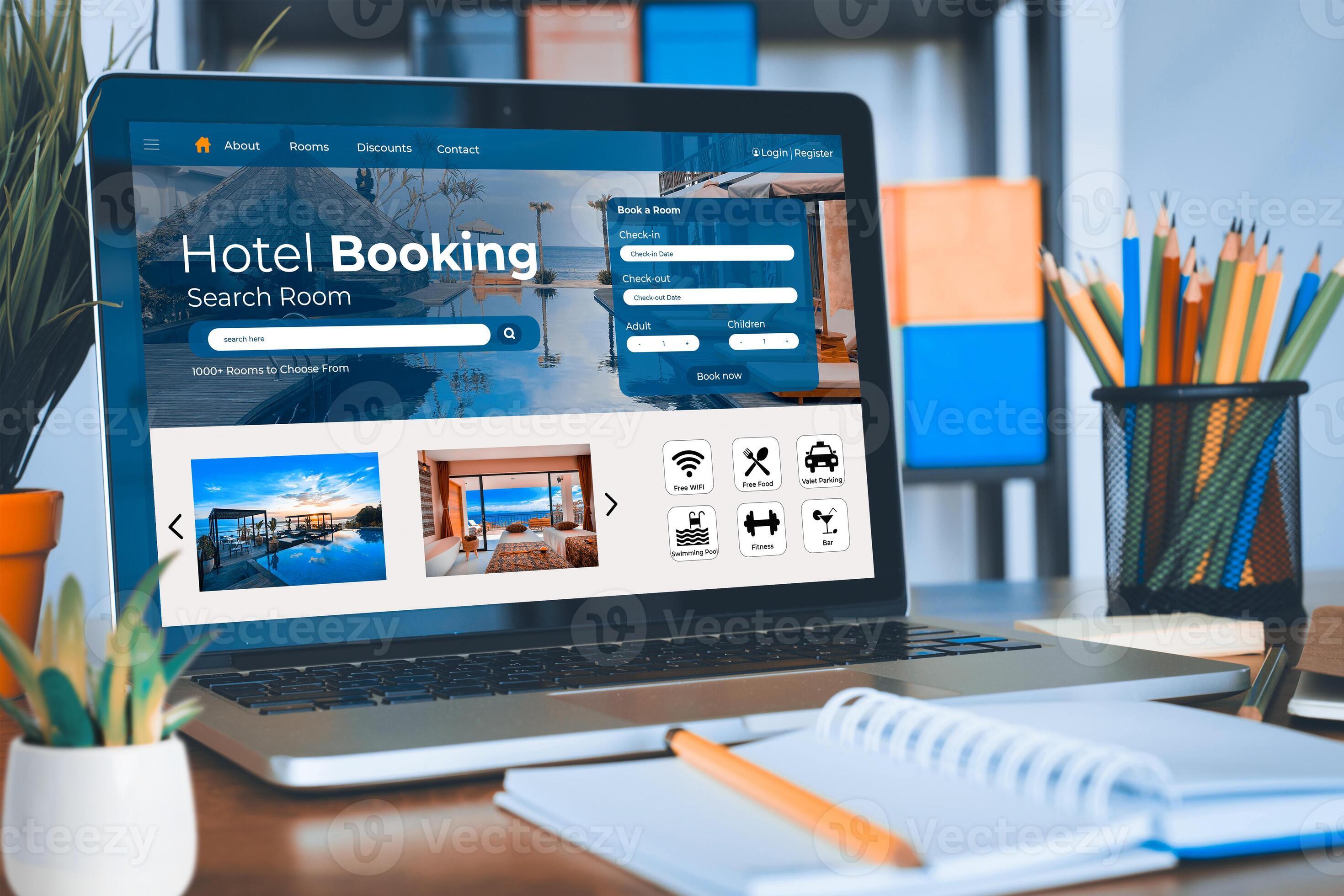According to TechSci Research, the India Online Accommodation Market was valued at USD 8.24 Billion in 2024 and is anticipated to reach USD 14.58 Billion by 2030, growing at a CAGR of 10.04% during the forecast period. This growth trajectory reflects the digital transformation underway in the Indian travel and tourism sector, where technology, mobile penetration, and consumer preference for convenience are reshaping how accommodations are discovered, selected, and booked.
The surge in online accommodation demand is being driven by an increasingly mobile-first population, rising domestic tourism, and the diversification of lodging options that cater to all income groups and travel preferences—from luxury hotels and boutique stays to budget hostels and homestays. The convergence of digital innovation and consumer convenience is ushering in a new era for travel in India.
Download Free Sample Report - https://www.techsciresearch.com/sample-report.aspx?cid=28461
Industry Key Highlights
Market Size (2024): USD 8.24 Billion
Forecast Market Size (2030): USD 14.58 Billion
CAGR (2024–2030F): 10.04%
Dominant Mode of Booking: Third-Party Online Portals
Fastest-Growing Region: West India
Key Players: OYO, MakeMyTrip, Booking.com, Airbnb, Goibibo, Trivago
Market Overview
India’s online accommodation sector is evolving from a fragmented space dominated by budget hotel aggregators into a tech-driven ecosystem offering end-to-end solutions. Platforms like MakeMyTrip, OYO, Cleartrip, and Airbnb are leading the transformation, enabling millions of travelers to search, compare, and reserve accommodations with just a few taps.
The rise of mobile-first platforms, availability of affordable internet, and growing trust in digital transactions are the bedrock of this transformation. Furthermore, increased frequency of domestic travel, a resilient tourism ecosystem, and changing traveler behavior post-pandemic have all contributed to market expansion.
Key Growth Drivers
1. Mobile Penetration and Internet Access
India’s internet landscape is among the most dynamic globally. With over 1.1 billion mobile subscribers and rapid 4G/5G deployment, even small towns now have access to seamless mobile internet. This has enabled widespread adoption of online platforms, including booking accommodations via apps.
2. Domestic Tourism Boom
Rising disposable incomes and a cultural shift toward experiential travel have sparked a surge in domestic travel. Post-pandemic, travel habits have also evolved—with more frequent but shorter trips, staycations, and work-from-anywhere stays gaining popularity. This shift has accelerated demand for diverse accommodation options available online.
3. Government-Led Tourism Initiatives
Campaigns like "Incredible India", Dekho Apna Desh, and simplified e-visa processes have helped attract both domestic and international travelers. Increased infrastructure investment in airports, roads, and tourist circuits also boosts the market by improving accessibility to Tier II/III cities.
4. Ease and Variety Offered by Online Platforms
Online platforms provide users with real-time comparisons, competitive pricing, verified reviews, secure transactions, and value-added services like 24x7 customer support. This convenience is unmatched by traditional booking methods, leading to growing consumer preference for digital channels.
5. Digital Payments and UPI Adoption
Widespread acceptance of digital wallets, credit cards, and UPI has made it easier for consumers to pay online, boosting trust and convenience in booking stays digitally—especially among younger users and those in semi-urban India.

Emerging Market Trends
1. AI and Personalization
Leading platforms use Artificial Intelligence and Machine Learning to tailor recommendations, predict user preferences, and offer dynamic pricing. Personalized search results based on behavior, history, and travel goals have significantly improved the customer experience.
2. Voice-Enabled and Multilingual Interfaces
To increase accessibility across linguistic demographics, companies like MakeMyTrip have integrated voice-assisted bookings in regional languages, catering to non-English-speaking users and new internet users in Tier II/III cities.
3. Virtual Property Tours and Contactless Experiences
360-degree VR tours and instant booking confirmations help users assess accommodations more accurately, while contactless check-ins and digital keycards provide safety and hygiene assurance in a post-COVID world.
4. Rise of Unique & Alternative Stays
There is growing demand for heritage homes, treehouses, boutique resorts, farm stays, and co-living spaces. Platforms like Airbnb and StayVista are tapping into this trend with curated stays that offer authenticity and personalized experiences.
5. Eco-Tourism and Sustainability
Eco-friendly stays, green-certified hotels, and sustainable travel packages are rising in popularity, especially among millennial and Gen Z travelers who are conscious of their carbon footprint.
Market Segmentation
By Platform
Mobile Applications
Apps account for a majority of bookings due to their convenience, notifications, and loyalty features. Apps offer in-app deals and a seamless UI/UX tailored to mobile users.Websites
While still relevant, websites are primarily used by business travelers and older demographics, often for complex, multi-stay itineraries or bulk bookings.
By Mode of Booking
Third-Party Online Portals (Fastest-Growing Segment)
Dominated by players like MakeMyTrip, Goibibo, Booking.com, and Trivago, these platforms have built trust through:
Curated listings
Verified reviews
Combo travel packages
Customer support
Their user-centric features like price alerts, last-minute deals, and loyalty programs keep users engaged and encourage repeat bookings.
Direct/Captive Portals
Used by global hotel chains (e.g., Marriott, Taj, Hilton) and homegrown brands (OYO, Treebo), captive portals offer:
Direct deals
Membership rewards
Customized upgrades
This segment is growing, but still faces challenges in matching the reach and convenience of aggregators.
By Region
West India (Fastest-Growing Region)
States like Maharashtra, Rajasthan, and Gujarat lead due to:
Popular tourist cities (Jaipur, Udaipur, Mumbai, Pune)
Well-developed travel infrastructure
A mix of business and leisure demand
South India
Cities like Bengaluru, Hyderabad, and Chennai are major business travel hubs. Southern India also leads in tech adoption, supporting higher digital booking rates.
North India
Includes high-volume destinations like Delhi, Agra, Shimla, and Manali. Significant demand exists, but fragmented supply and seasonal fluctuations affect growth.
East and Northeast India
Emerging as offbeat travel destinations, especially in states like Sikkim, Assam, Meghalaya, and Odisha, aided by social media and government promotion.
Competitive Landscape
India’s online accommodation space is highly competitive and includes a mix of homegrown tech startups, global giants, travel aggregators, and hotel chains. Intense competition is pushing players to innovate, localize, and bundle services like transport, meals, and local experiences.
Key Players
| Company Name | Notable Features |
|---|---|
| MakeMyTrip | One-stop platform for flights, hotels, and holiday packages |
| OYO Rooms | Largest budget hotel aggregator; also manages own inventory |
| Booking.com | Global leader with strong Indian presence and luxury portfolio |
| Goibibo | Competitive pricing and reward programs |
| Airbnb | Focus on unique and personalized homestay experiences |
| Cleartrip | Known for simplicity and mobile optimization |
| Agoda | Strong in Southeast Asia; increasing footprint in India |
| IRCTC | Growing focus on hotel tie-ups to complement rail bookings |
Challenges in the Market
Unorganized Supply Base: Many small hotels lack digital presence or standards of service consistency.
Low Penetration in Rural Areas: Despite growing connectivity, rural tourism still relies on traditional booking modes.
Pricing Competition: Aggressive discounts and platform commissions strain margins for hotels.
Customer Retention: High cost of user acquisition and fierce competition make loyalty tough to maintain.
Opportunities Ahead
1. Tier II & III City Expansion
As digital infrastructure spreads to non-metro towns, huge untapped potential exists in domestic leisure and religious tourism.
2. Integrated Travel Services
Offering end-to-end services (e.g., visa assistance, cab bookings, experience curation) will create value and convenience for users.
3. Partnerships with Government and Local Tourism Boards
Collaborating to digitize rural homestays, eco-tourism projects, and heritage accommodations can unlock new supply and bring inclusive growth.
4. Subscription-Based Models
Loyalty programs and travel clubs offering member-only deals, free cancellations, and priority support can drive long-term engagement.
Future Outlook
The India Online Accommodation Market is poised for sustained double-digit growth driven by:
Wider internet and smartphone reach
Changing traveler demographics
Innovations in travel tech
Government support for tourism
Digital payment revolution
Players that invest in tech-driven personalization, hyper-localization, eco-conscious offerings, and frictionless user experience will emerge as leaders. The next phase of growth will be defined not just by volume, but by value creation and service excellence.
10 Benefits of the Research Report
Provides precise market size forecasts (2020–2030)
Tracks segmentation by region, platform, and booking mode
Maps competitive landscape with profiles of leading players
Highlights growth drivers and technology enablers
Identifies high-potential emerging regions
Pinpoints digital innovation trends and consumer behavior
Offers actionable insights for investors and new entrants
Assesses post-COVID market recovery and future scenarios
Guides on strategic partnerships and product positioning
Supports policy makers with tourism sector insights
Conclusion
India’s online accommodation market is evolving into a highly personalized, tech-empowered, and customer-centric ecosystem. With urban travelers seeking efficiency and rural travelers getting connected digitally, the market is ripe with opportunities. The coming years will see consolidation, collaboration, and customization take center stage, transforming how India travels and stays.
Contact
TechSci Research LLC
420 Lexington Avenue, Suite 300,
New York, United States- 10170
Tel: +1-332-258-6602
Website: www.techsciresearch.com






